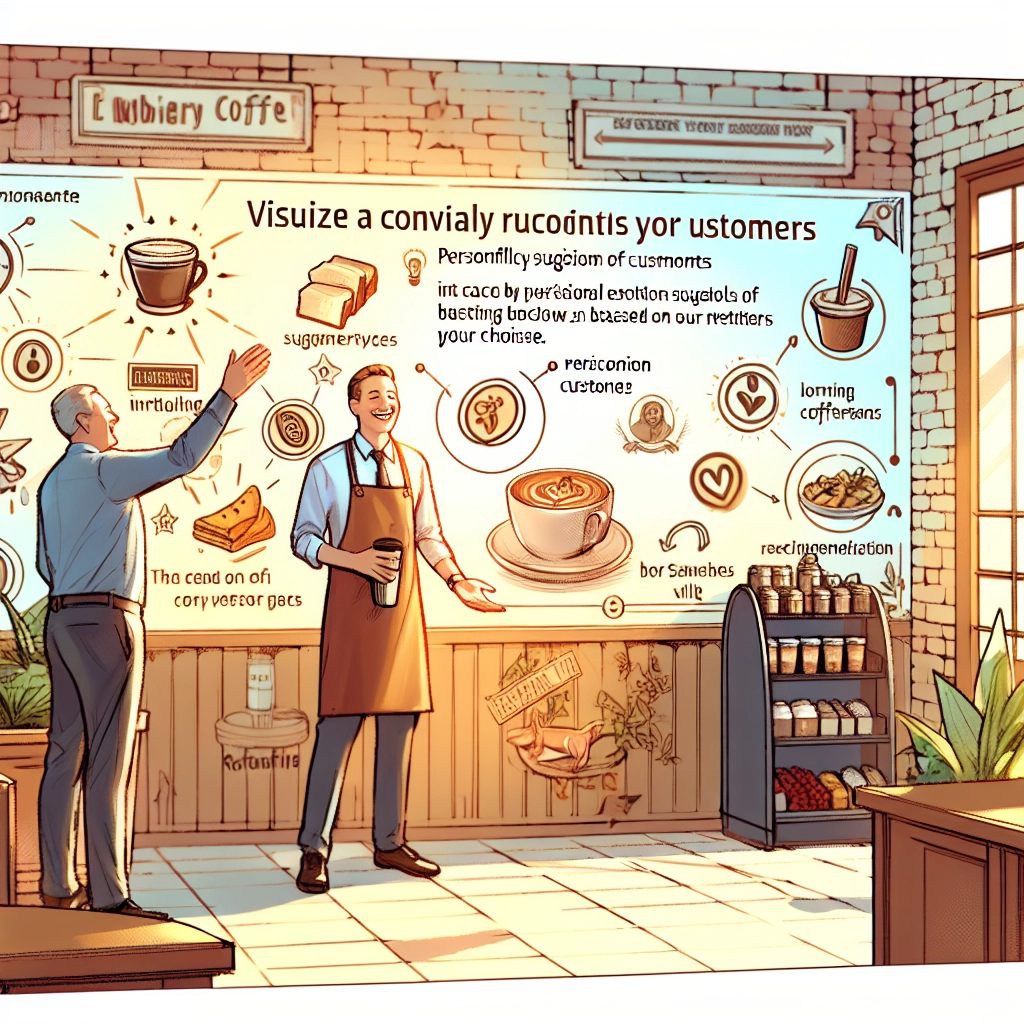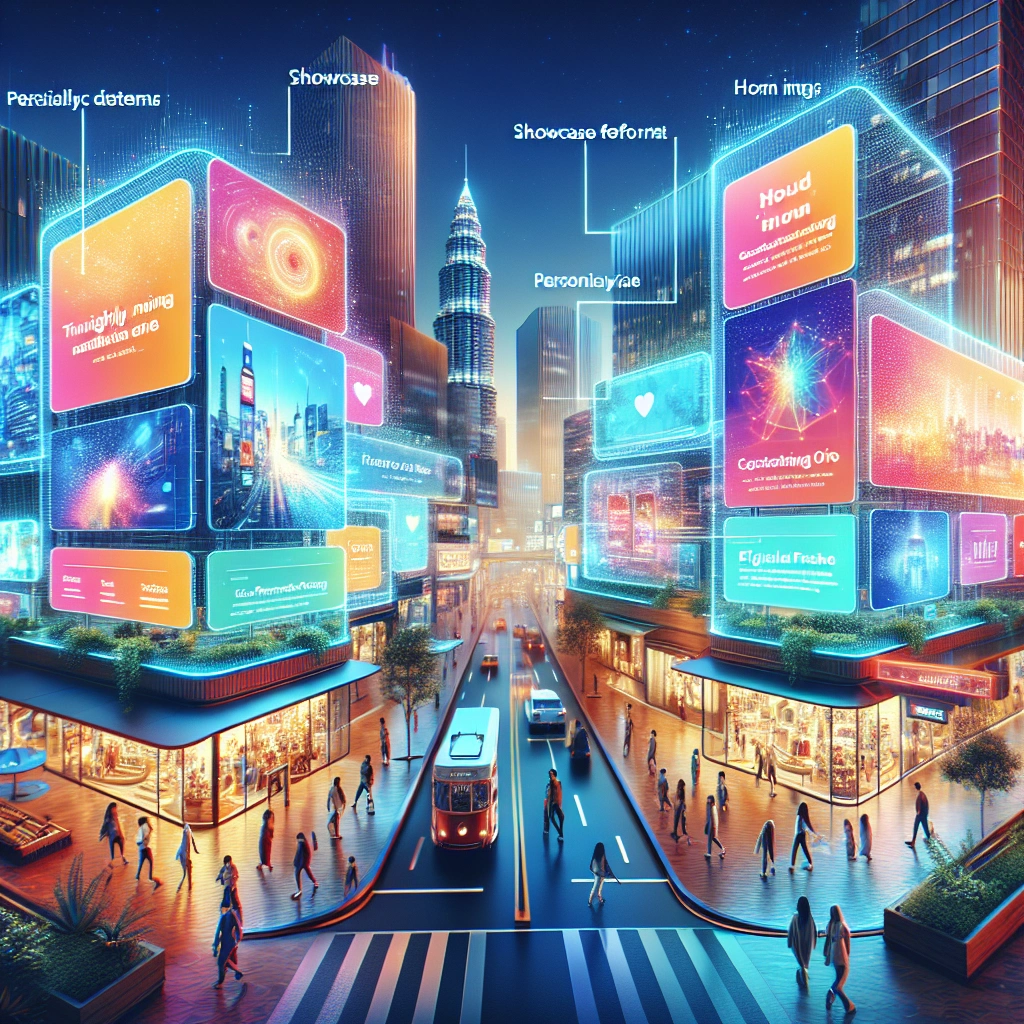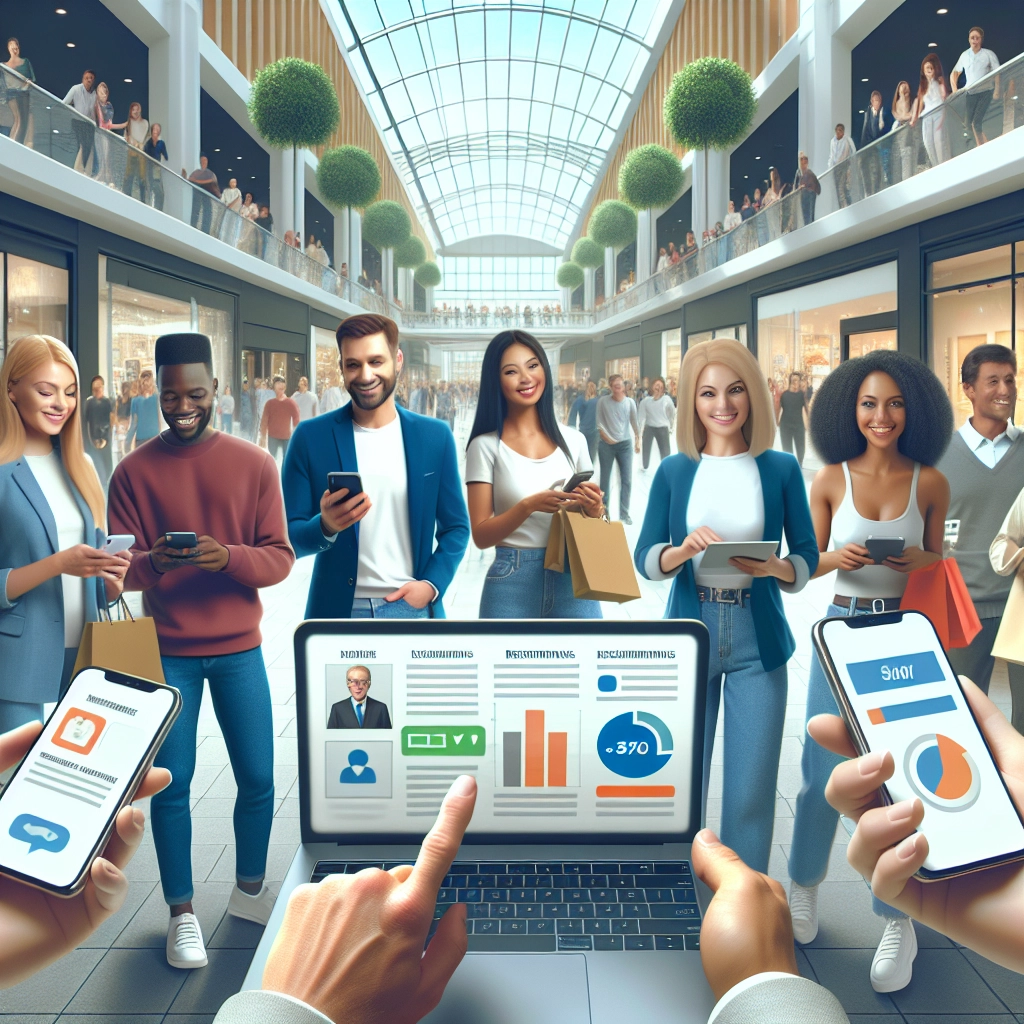

Data personalization in marketing refers to the practice of using customer data to tailor marketing efforts to individual customers. Customer engagement in marketing is the process of building meaningful relationships, fostering brand loyalty, and driving long-term success.
Understanding the impact of data personalization on customer engagement is important because it allows businesses to create more meaningful experiences that resonate with their target audience.
Check out this Youtube video: “Revealing the Impact of Personalization in Marketing in 2023” to understand the significant influence data personalization has on customer engagement in marketing.
Understanding Data Personalization
Definition and examples of data personalization
Data personalization in marketing refers to the practice of using customer data and behavior to tailor marketing messages and content to meet the specific needs and interests of individual customers. For example, streaming services like Netflix analyze a user’s viewing history to recommend personalized movie suggestions.
Similarly, social media platforms customize users’ news feeds based on their preferences and browsing behaviors. This type of personalization enhances customer experiences by delivering relevant content and offers, ultimately increasing engagement and satisfaction.
Importance of data personalization in marketing
Data personalization plays a crucial role in marketing as it enables businesses to create a more tailored and meaningful connection with their customers. By leveraging customer data, companies can deliver personalized recommendations, advertisements, and promotions that resonate with individual preferences, leading to higher levels of customer engagement and satisfaction.
This personalized approach fosters stronger brand loyalty and drives improved customer retention, ultimately contributing to higher conversion rates and business growth.
Examples of successful data personalization strategies
One notable example of a successful data personalization strategy is Spotify’s personalized playlists, which are curated based on users’ music preferences and listening patterns. This approach enhances the overall user experience by providing tailored content that aligns with each user’s music tastes.
Additionally, e-commerce platforms often utilize personalized product recommendations based on customers’ browsing and purchase history, leading to increased sales and customer satisfaction. Another successful strategy is leveraging demographic data and browsing behavior to segment audiences for targeted email campaigns, resulting in higher open rates and click-through rates.
| Data Personalization Example | Description |
|---|---|
| Spotify’s Personalized Playlists | Curated based on users’ music preferences and listening patterns. Enhances user experience by providing tailored content. |
| E-commerce Product Recommendations | Utilizes browsing and purchase history to provide personalized product suggestions, leading to increased sales and customer satisfaction. |
| Targeted Email Campaigns | Segments audiences based on demographic data and browsing behavior, resulting in higher open and click-through rates. |
Data personalization significantly impacts customer engagement in marketing by enabling businesses to deliver tailored experiences and content that resonate with individual preferences. By leveraging customer data effectively, companies can foster stronger customer relationships and drive business growth through enhanced engagement, satisfaction, and loyalty.
Importance of Customer Engagement
Definition of customer engagement in marketing
Customer engagement in marketing refers to the ongoing interaction and connection between a business or brand and its customers. It goes beyond the one-time transaction and involves intentional, consistent approaches that provide value at every customer interaction.
This can include communication through various channels like social media, mobile devices, and personalized outreach efforts. Customer engagement fosters a sense of loyalty and trust by enhancing the overall customer experience, thus creating meaningful relationships that extend beyond the initial purchase.
Importance of customer engagement for businesses
Customer engagement is critical for businesses as it significantly impacts customer loyalty, satisfaction levels, brand perception, and Revenue and growth opportunities. Engaged customers are more likely to have a stronger emotional connection with the brand, leading to increased brand experience and trust.
Additionally, customer engagement provides valuable feedback and insights, enabling businesses to better understand and address customer needs, ultimately boosting customer retention and long-term profitability.
Examples of successful customer engagement strategies
- Social Media Interaction: Engaging with customers on platforms like Instagram, Twitter, and Facebook through interactive posts and personalized responses.
- Personalized Email Campaigns: Utilizing customer data for targeted email content, providing tailored recommendations and offers based on individual preferences.
- Loyalty Programs: Offering rewards and incentives for frequent purchases, encouraging repeat business and fostering long-term customer loyalty.
- Interactive Customer Support: Implementing live chat support and personalized assistance for a seamless and engaging customer service experience.
- User-Generated Content Promotion: Showcasing customer-generated content through contests, features, and testimonials, fostering a sense of community and engagement.
- Omnichannel Personalization: Providing a consistent and personalized experience across various touchpoints, ensuring a cohesive and engaging customer journey.
| Customer Engagement Strategy | Impact |
|---|---|
| Social Media Interaction | Boosts brand visibility and engagement |
| Personalized Email Campaigns | Increases conversion rates and customer satisfaction |
| Loyalty Programs | Fosters customer retention and repeat business |
| Interactive Customer Support | Improves customer satisfaction and loyalty |
| User-Generated Content Promotion | Enhances brand authenticity and community engagement |
| Omnichannel Personalization | Creates a cohesive and tailored customer experience |
The Role of Data Personalization in Customer Engagement
How data personalization impacts customer engagement
Data personalization impacts customer engagement by creating a more personalized and relevant experience for each customer, leading to increased brand loyalty and business growth. By utilizing customer data, companies can tailor their marketing efforts to match the unique preferences and behaviors of their audience, resulting in higher engagement levels and stronger relationships with customers.
Examples of how data personalization can enhance customer engagement
One example of how data personalization can enhance customer engagement is through personalized email marketing campaigns. By leveraging customer data to tailor the content and offers in emails, companies can deliver highly relevant and personalized messages, leading to increased open rates, click-through rates, and conversions. Another example is personalized product recommendations on e-commerce websites, where customer data is used to suggest products that align with individual preferences, ultimately enhancing the customer shopping experience and driving more sales.
Statistics on the impact of data personalization on customer engagement
| Statistic | Impact |
|---|---|
| Research shows that personalization most often drives 10 to 15 percent revenue lift | Personalization can significantly increase revenue |
| Over three-quarters of consumers said that receiving personalized communications was a key factor in prompting their consideration of a brand | Personalization is effective in influencing customer brand consideration |
| 80% of customers feel frustrated when a shopping experience is impersonal | Personalization significantly impacts customer satisfaction and frustration levels |
The impact of data personalization on customer engagement in marketing is significant, as it leads to increased customer satisfaction, higher engagement, and ultimately drives business growth and success.
Creating Personalized Marketing Content
Importance of creating personalized content
Personalized content is crucial in marketing as it allows brands to connect with their audience on a deeper level. By tailoring content to individual preferences and behaviors, brands can create a more meaningful and engaging experience for their customers, leading to higher customer satisfaction and loyalty.
Examples of personalized content in marketing
Some examples of personalized content in marketing include targeted emails, custom video messages, product recommendations, and personalized website content. For instance, Shutterfly successfully personalized item offerings on its app, enhancing customer engagement and satisfaction.
Tips for creating effective personalized content
To create effective personalized content, it’s essential to understand and segment the audience, tailor content to demographic and behavioral needs, and craft authentic and engaging content that resonates with the audience’s preferences. Additionally, leveraging customer data and utilizing personalization platforms can significantly enhance the effectiveness of personalized content marketing efforts.
Enhancing Customer Experience with Personalization
How data personalization can enhance the customer experience
Personalized data allows businesses to tailor their offerings and communication directly to individual customer needs and preferences. By analyzing customer behavior and purchase history, companies can provide targeted recommendations, exclusive promotions, and relevant content, enhancing the overall customer experience.
Examples of personalized experiences in marketing
One noteworthy example of personalized marketing is the “My Starbucks Rewards” program, where customers receive tailored offers based on their previous purchases. Another example is Amazon’s personalized product recommendations, which are generated based on each user’s browsing and purchase history.
These personalized experiences create a sense of individualized attention, fostering customer loyalty and satisfaction.
Statistics on the impact of personalized experiences on customer satisfaction
According to a study by Epsilon, 80% of consumers are more likely to make a purchase when brands offer personalized experiences. Additionally, 74% of customers have a chance of buying a product based on a positive customer experience alone.
These statistics underscore the significant impact of personalized experiences on customer satisfaction and purchasing behavior.
| Statistics | Impact |
|---|---|
| 80% of consumers more likely to make a purchase | Higher purchase intent |
| 74% of customers likely to buy based on CX | Direct link to purchase |
Personalized experiences not only enhance customer satisfaction but also drive increased purchasing behavior, highlighting the importance of data personalization in marketing strategies.
Understanding Customer Behavior through Data Personalization
How data personalization helps in understanding customer behavior
Data personalization helps in understanding customer behavior by tracking individual’s web browsing habits and utilizing this information to deliver targeted content. This personalized approach allows marketers to gauge customer preferences, interests, and past interactions, enabling them to tailor their marketing efforts to meet specific customer needs and desires.
Additionally, it facilitates the creation of more relevant and engaging marketing campaigns, ultimately leading to improved customer satisfaction and loyalty.
Examples of using data personalization to analyze customer behavior
An example of using data personalization to analyze customer behavior is tracking a customer’s browsing and purchase history to recommend products or services that align with their interests. Another example is leveraging social media data to gain insights into customers’ hobbies, preferences, and social networks, allowing for more effective personalized marketing.
In both cases, the personalized approach enhances customer engagement and strengthens the brand-customer relationship.
Statistics on the benefits of understanding customer behavior in marketing
| Statistics |
|---|
| 76% of consumers expect companies to understand and cater to their needs and expectations. |
| Organizations leading in customer experience outperform those that do not consider consumer feedback. |
| 82% of consumers expect an immediate response to sales or marketing queries. |
| Online shopping has witnessed a 36% increase in the number of Americans conducting household purchases. |
Understanding customer behavior in marketing yields significant benefits, including meeting customer expectations, enhancing consumer experience, providing immediate responses, and capitalizing on the rising trend of online shopping. By integrating data personalization strategies into marketing endeavors, businesses can gain valuable insights into customer behavior, leading to improved engagement and loyalty.
Data personalization serves as a powerful tool in comprehending customer behavior, providing relevant examples and statistics to underscore its profound impact on modern marketing strategies.
Overcoming Challenges in Data Personalization
Common challenges in implementing data personalization
- Gathering accurate and complete customer data from various sources
- Managing and analyzing large volumes of data efficiently
- Ensuring data security and compliance with privacy regulations
Solutions to overcome challenges in data personalization
- Partnering with AI companies for advanced data processing
- Investing in data management and analysis tools for streamlined operations
- Implementing robust data security measures and compliance protocols
Case studies of businesses successfully overcoming challenges in data personalization
| Company | Challenge Overcome | Solution |
|---|---|---|
| Starbucks | Personalizing customer offers | Leveraging customer data for tailored promotions and app features |
| Nike | Streamlining customer experience | Using AI for data-driven personalized recommendations |
| Home Depot | Efficient data management | Implementing advanced data analytics tools |
Balancing Personalization and Privacy
Importance of balancing personalization with customer privacy
Balancing personalization with customer privacy is crucial as it allows businesses to offer tailored experiences while respecting individual data rights. By finding the right equilibrium, companies can build trust with their customers and avoid potential backlash from privacy breaches.
Strategies for maintaining customer privacy while implementing data personalization
To maintain customer privacy while implementing data personalization, businesses should prioritize transparent data collection practices, offer clear opt-out options, and limit the amount of personal data collected. By empowering customers to control their own data and providing diverse media mix, companies can ensure personalized experiences without overstepping privacy boundaries.
Laws and regulations related to data privacy in marketing
Data privacy laws and regulations in marketing require organizations to obtain explicit opt-in consent from individuals before collecting or using their data. Additionally, marketers need to be proactive in obtaining consent from customers and make it easy for them to opt out if they choose to do so.
Several laws, such as CAN-SPAM, permit consumers to restrict marketing activities involving their personal data, emphasizing the need for adherence to legal guidelines and proactive consent management.
Leveraging Data Personalization for Targeted Marketing
How data personalization helps in targeted marketing
Data personalization helps in targeted marketing by allowing businesses to tailor their marketing efforts to the specific needs and preferences of individual customers. This means that marketing messages can be personalized to resonate with each customer on a more personal level, leading to higher engagement and conversion rates.
By leveraging data personalization, businesses can send targeted marketing messages that are more relevant, timely, and effective in capturing the attention of their audience.
Examples of targeted marketing campaigns using data personalization
An excellent example of targeted marketing campaigns using data personalization is Netflix. They utilize AI and machine learning to monitor user preferences, resulting in personalized show recommendations and content suggestions.
Another example is personalized homepage promotions, which influenced 85% of consumers to make a purchase, and personalized shopping cart recommendations, which influenced 92% of online shoppers. These examples demonstrate the significant impact of data personalization in driving customer engagement and conversion.
Statistics on the effectiveness of targeted marketing through data personalization
| Statistics | Effectiveness |
|---|---|
| 63% of marketers observed personalization increases customer interactions and better conversion rates | High |
| Over three-quarters of consumers consider receiving personalized communications as a key factor in their consideration | Very high |
| Personalized marketing is indispensable among B2B and B2C marketers worldwide | Extremely impactful |
The statistics above highlight the undeniable effectiveness of targeted marketing through data personalization in driving customer interactions, improving conversion rates, and influencing purchase decisions.
All these factors combined demonstrate the significant impact of data personalization on customer engagement in marketing, leading to more effective and successful targeted marketing campaigns.
Customer Loyalty and Retention through Data Personalization
How data personalization impacts customer loyalty
Data personalization impacts customer loyalty by creating personalized experiences that cater to individual customer needs and preferences. By leveraging customer data such as purchase history, browsing behavior, and demographic information, businesses can tailor their marketing messages and offerings, leading to increased customer satisfaction and brand loyalty.
This personalized approach makes customers feel valued and understood, fostering a deeper connection with the brand and ultimately leading to higher retention rates.
Examples of data personalization strategies for customer retention
One example of a data personalization strategy for customer retention is personalized product recommendations based on past purchases or browsing history. Another example is personalized email marketing campaigns that address customers by their names and offer customized promotions.
By implementing these strategies, businesses can create a more tailored and engaging experience for their customers, thereby increasing the likelihood of repeat purchases and long-term loyalty.
Statistics on the relationship between data personalization and customer loyalty
According to McKinsey, personalization has been shown to drive a 10 to 15 percent revenue lift, with company-specific increases ranging from 5 to 25 percent. Moreover, over three-quarters of consumers indicated that receiving personalized communications was a key factor in influencing their consideration of a brand, with 78 percent stating that such content made them more likely to repurchase.
These statistics highlight the significant impact of data personalization on customer engagement and loyalty, underscoring its importance in modern marketing strategies.
| Statistics | Impact |
|---|---|
| 10-15% revenue lift | Demonstrates the substantial revenue increase from personalization |
| 78% influenced to repurchase due to personalization | Indicates the strong influence of personalized content on repurchasing |
Data personalization plays a pivotal role in fostering customer loyalty and retention by enabling businesses to deliver tailored experiences, personalized recommendations, and relevant communications that resonate with individuals on a deeper level. These strategies are vital for establishing long-term customer relationships and driving sustainable business growth.
Remember, when it comes to winning over customers, personalization is the key to building lasting relationships. Business success hinges on the ability to understand and cater to the unique preferences of every customer.
Measuring the Impact of Data Personalization
Metrics for measuring the impact of data personalization on customer engagement
| Metric | Description |
|---|---|
| Customer Engagement Score | Tracks the level of customer interaction and response to personalized marketing efforts to gauge overall engagement. |
| Conversion Rate | Measures the percentage of website visitors who take the desired action, reflecting the effectiveness of personalized content. |
Examples of KPIs for evaluating the effectiveness of data personalization
- Customer Retention Rate: Identifies the percentage of customers retained over a specific period, indicating the success of personalized strategies in fostering loyalty.
- Average Order Value (AOV): Evaluates the average amount spent per order by customers, highlighting the impact of personalized recommendations on purchase behavior.
Case studies of businesses measuring the impact of data personalization
- Personalizing the Customer Journey
- Revealed how tailored experiences elevated customer satisfaction and retention, demonstrating the positive impact of data personalization.
- The Value of Getting Personalization Right
- Illustrated that companies leveraging effective personalization strategies witnessed substantial revenue growth, emphasizing the business impact of data personalization.
Measuring the impact of data personalization on customer engagement involves assessing key metrics such as customer engagement score and conversion rate, evaluating KPIs like customer retention rate and average order value, and analyzing case studies showcasing successful implementation in driving positive outcomes.
The Future of Data Personalization in Marketing
Trends and advancements in data personalization
- One exciting trend is the increasing use of first-party data, allowing marketers to better understand and target their audience.
- Data privacy measures are also shaping the future, prompting the development of innovative strategies to personalize marketing without compromising privacy.
Future implications of data personalization on customer engagement
- The impact of data personalization on customer engagement in marketing is monumental.
- Brands can anticipate improved customer engagement through personalized experiences, leading to increased website traffic, higher email open rates, and amplified social media engagement.
Predictions for the evolution of data personalization in marketing
- The future evolution of data personalization in marketing will see a shift towards more comprehensive personalization beyond digital channels, encompassing in-store experiences.
- Brands are expected to rely on deep customer understanding and authentic personalization to create lasting impact and build trust with their audience.
Recommended Amazon Products for Personalized Marketing Content
Here’s a curated list of products that can help you create personalized marketing content with ease. These recommendations are based on functionality and reviews.
Ring Light with Tripod Stand
A ring light is essential for creating high-quality videos and photos for personalized marketing content. The adjustable tripod stand provides flexibility in positioning the light for various shooting angles and setups.
The dimmable light allows for customization according to the content requirements.
Blue Yeti USB Microphone
Capturing clear and professional audio is crucial for personalized marketing content. The Blue Yeti USB microphone offers studio-quality sound with versatile pickup patterns.
It is compatible with various recording software, making it ideal for podcasts, voice-overs, and interviews.
Logitech C920 HD Pro Webcam
For personalized video content, a high-definition webcam is necessary. The Logitech C920 HD Pro Webcam delivers full HD 1080p video calling and recording.
It boasts autofocus and light correction features for clear and detailed visuals.
Movo PM10 Lavalier Microphone
When creating personalized content on the go, a lavalier microphone provides convenience and improved audio quality. The Movo PM10 Lavalier Microphone is compatible with smartphones, DSLRs, and other recording devices.
Its omnidirectional polar pattern captures sound from all directions.
Elgato Stream Deck
To streamline the process of creating personalized content, the Elgato Stream Deck offers customizable control over content creation software and streaming platforms. It features keypads with LCD screens for quick access to commands and functions.
Top Recommended Product for Personalized Marketing Content
If you’re looking for the best solution for creating personalized marketing content, we highly recommend the Ring Light with Tripod Stand. Here’s why:
| Pros | Cons |
|---|---|
| Adjustable height and angle | Bulky for travel |
| Dimmable light for customization | External power source needed |
| Easy setup and assembly |
Ready to enhance your personalized marketing content? Check out the Ring Light with Tripod Stand today for the best results!


Conclusion
The impact of data personalization on customer engagement in marketing is evident in the improved customer satisfaction, loyalty, and retention. By tailoring marketing efforts to individual preferences and behaviors, businesses can create more meaningful and relevant interactions with their customers, leading to higher engagement and Increased sales and revenue.
Furthermore, businesses are encouraged to leverage data personalization to enhance their customer engagement strategies and stay competitive in the market. With the availability of advanced data analytics and technology, companies have the opportunity to collect, analyze, and use customer data to create personalized experiences that resonate with their target audience, ultimately driving brand affinity and customer loyalty.
In the future, the use of data personalization will continue to play a crucial role in marketing and customer engagement. As technology continues to evolve and consumer expectations change, businesses will need to adapt and innovate their strategies to effectively engage and connect with their customers through personalized experiences, ultimately driving long-term success and growth in the competitive business landscape.














